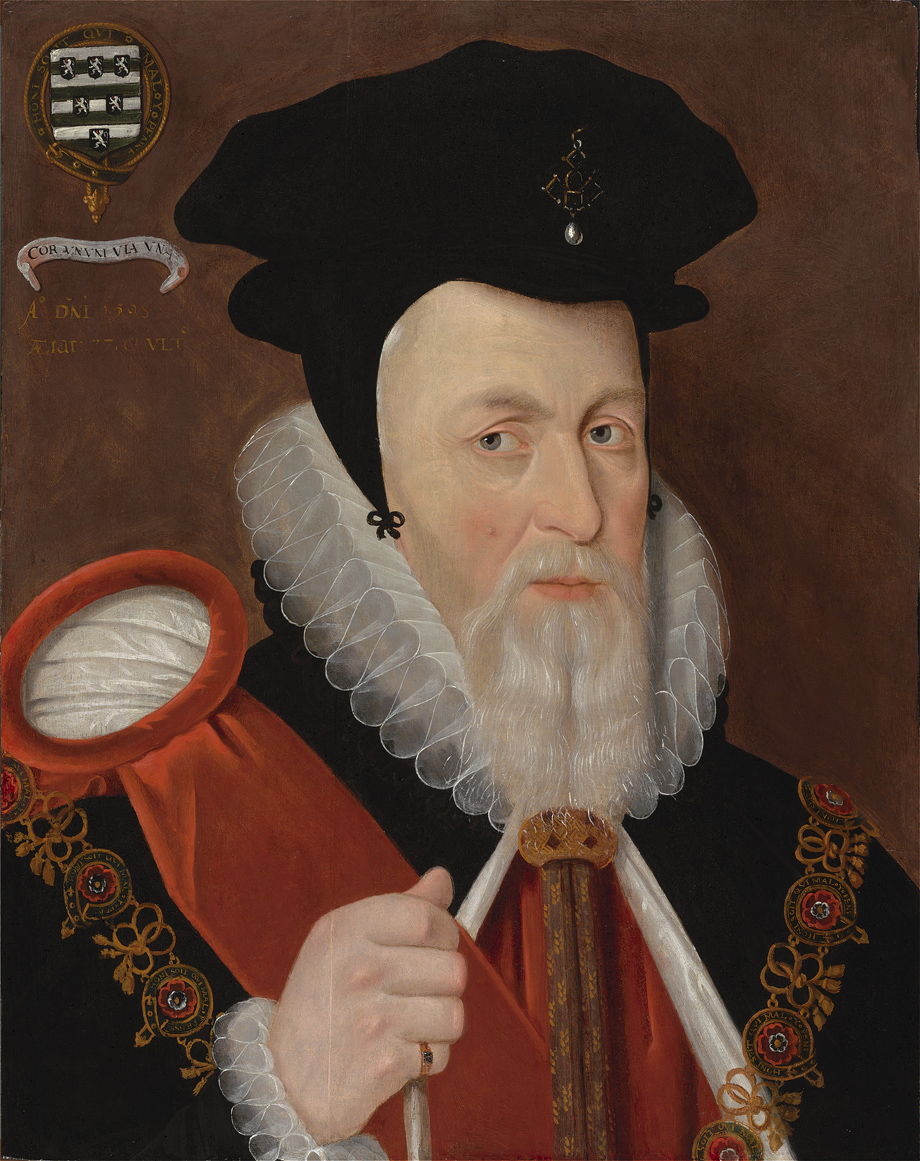Surveillance states needn’t make us paranoid
written for Conservative Home, 20 June 2013

William Cecil: The face of a man with a large file of loopy correspondence.
It’s been a long day in the office for London’s most-hated politician. The French ambassador’s in a fury: it’s just come out that Her Majesty’s Secret Service used a key diplomatic summit the previous year to intercept all communications between his team, blowing the French negotiating position on what was, fundamentally, a trade agreement between allies. The country is in the grip of a fevered paranoia, fuelled by new claims in the noisome London press that the largest state espionage apparatus anyone’s ever known is reading absolutely everyone’s mail.
In attempt to cheer himself up, the politician opens up the file in which he keeps the nuttiest petitions he’s ever received from constituents.
Here’s the first thing that catches his eye:
“Then at 30 years old God moved me to write and complain to my sovereign lady Queen Elizabeth, and to all the lords of her majesty’s honourable Privy Council, and to many others… so that within this 7 years I have sent 200 letters, wherein I have not only complained of all the abuses and violent oppressions and sodomitical sins overflowing over this land…”
Because, as smart ConHome readers will have guessed, it’s 1593, not 2013. The politician is William Cecil, the spy apparatus is his inheritance from the greatest spy master of all time, Francis Walsingham, who had died of overwork three years earlier. And for all the pressures on his time, Cecil was bombarded by letters from concerned citizens who, as Tom Hollander’s “Call-Me-Simon” Junior Minister tells a constituent in Armando Iannucci’s In The Loop, found him “a magnet for people who are slightly mentally dispossessed… and also very sensible people like yourself”.
I find it impossible to read this letter, from unhinged army-veteran William Reynolds, without thinking of Hollander’s interlocutor in that scene, Steve Coogan’s “f***ing Zen” Paul, especially because, for William Reynolds as with Paul, the thing that really convinced him that the state was out to get him was “the strife between my mother and her neighbour for a hedge of roses”. As is so often the case today, sometimes the only way to resolve Mum’s dispute over a neighbour’s hedge was to write to the PM. It was probably the PM’s fault, after all.
But the real reason this crazed letter-writer fascinates me, especially when I read the latest disclosures about PRISM or GCHQ bugging the G8, is that he’s a model for our own time: a man who can blame his own barking insanity on a very real culture of state surveillance. The best authority on his life, Katherine Duncan-Jones, is quite convinced he’s “a paranoid schizophrenic… with florid symptoms”. Deliciously, after the incident with his mother’s hedge, he becomes convinced that Queen Elizabeth herself is reading his thoughts, having started by merely reading his letters, and “caused me and my doings to be watched and marked ever since I was a very young child, even from my rising up to my lying down”. And because she’s reading his thoughts, Elizabeth knows she’s at the centre of all his sexual fantasies – in fact, he tells Cecil, she’s probably using her mind-control spies to implant those very same sexual images in his brain. I wish I could share the archive’s details with you, readers, but ConHome would probably end up blocked by your porn filters. As we say in academic circles, he’s a nutter.
Since Edward Snowden’s PRISM revelations, it’s been widely acknowledged that spying on one’s enemies is nothing new – and Walsingham’s got his fair share of credit from modern fans. The eminently sensible Nick Herbert, noting the state’s duty to ensure security as well liberty, declared in the Commons that the Spanish Armada was “averted as much by the pen of Queen Elizabeth’s spymaster, Sir Francis Walsingham, as by the Royal Navy.” Anyone who reads Stephen Alford’s eloquent yet scholarly book, The Watchers, will learn exactly why Herbert’s right. The BBC even promotes the current “Tudor Court” season with a picture-spread of Francis Walsingham titled, rather incongruously for a desk-bound Puritan, “The Sixteenth Century Bond”.
But no one’s yet said that for the Tudors, as for us, the necessity of living with national surveillance really brought out the tin-foil hat brigade. And it made the unstable much more dangerous than they were before. We know that William Reynolds, sex-crazed letter-writer, wasn’t actually being watched, at least not until he started following up his letters with attempts to burst into the presence of the Queen in public. Imagined persecution leads to real “resistance” – just see the apologia left on video by recent Islamist murderers. But Reynolds believed it possible because, as an ex-soldier, he knew that Walsingham’s men did open letters up and down the country, breaking enemy ciphers and ingeniously creating their own. Reynolds knew the government flooded London with their own propaganda, supposedly written by independent thinkers but well known to be state-directed: no wonder he complained to Cecil that the publication of Shakespeare’s Venus and Adonis was a personally-targeted government attempt to drive him mad with sexual frustration.
The UK and US governments probably do have access to all my email, but I’m happy to trust they’re not that interested in playing around with my all too petty love life. I’m aware that now, as in 1593, there are religious fundamentalists who’d kill just to cause chaos, and while I’m hardly a fan of big government, I accept that the first duty of the state is to protect its citizens from precisely that threat. What worries me more is the culture of instability that public knowledge of espionage creates. As Alford notes in The Watchers: “the heightened vigilance of Elizabeth’s advisers was in fact potentially corrosive of the security they craved. A danger to any state is the powerful and often circular logic of conspiracy.” State suspects citizen, citizen suspects state. Let’s not allow PRISM to drive us mad. Or we’ll all end up writing sex-letters to Buckingham Palace.






